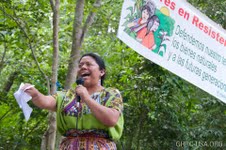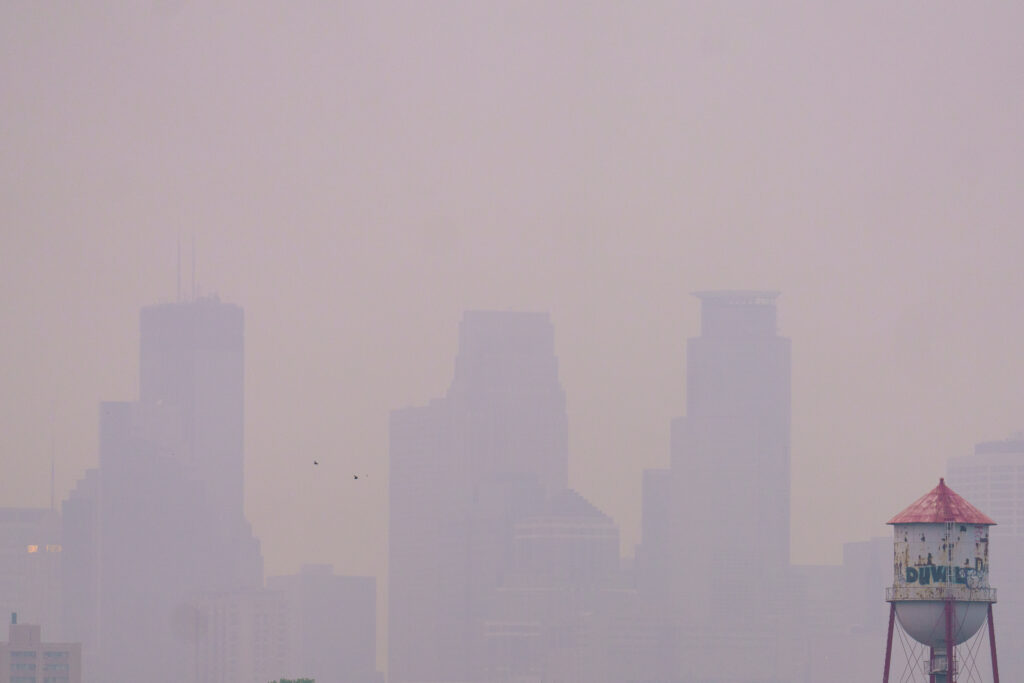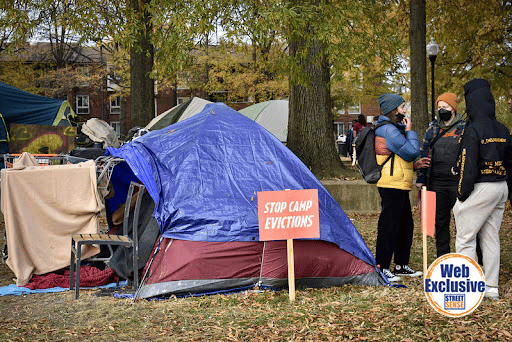The indigenous people of Guatemala should have a say in the environmental decisions that deeply affect their lives. That is the plea of activist Lolita Chavez Ixacquic.
Chavez is spokesperson for the K’iche’ People’s Council, an organization which represents 87 Mayan communities in the department of Quiché, Guatemala.
The originally Canadian tour moved to the U.S. when GHRC acquired the funds to bring her to Washington D.C..
Chávez discussed her community’s struggle for self-determination and land rights. She said activists, particularly women, have faced violence and intimidation for speaking out against multinational companies at work in her country.
“No one is consulting us. It’s almost like being slaves to these businesses. No one is asking us what we want,” said Chávez, on a speaking tour hosted by the grassroots Guatemalan Human Rights Commission.
Human rights and environmental activists are particularly concerned about mining operations moving forward in the country. Late in March four indigenous Xinca leaders were reportedly abducted while returning from a community referendum on the Escobal mining project in San Rafael Las Flores. One of those abducted was found dead the next day, human rights advocates reported.
The country comprises of a bloody history of repression. As Chávez spoke in Washington, a trial in her home country continued to explore genocide and crimes against humanity committed against the Mayan people during the military dictatorship of General Efrain Rios Montt.
With his dictatorship, a 36-year long civil war there claimed more than 200,000 according to Chávez. The war – which pitted the rightist military-controlled government against left-wing insurgents – was fought largely in the countryside homeland of the Mayan people.
Since the Mayans were seen as allies of the insurgents, entire villages were destroyed. The trial of Montt has been hailed by some as a sign of the larger transformation of Guatemala’s justice system.
The threat of violence against those who speak out against powerful interests in the country remains, said GHRC director Kelsey Alford-Jones.
“Despite the fear of repression, communities are again organizing,” she said.
Chavez and her hosts said much work remains to be done to give the indigenous Mayan people a voice, and the power to live safe and healthy lives.
“What we stand up for is their right to demand those things and not to be attacked for it — or to not be arrested for it,” said Kathryn Johnson, the group’s development and advocacy coordinator.
Chávez said Guatemalans – particularly the indigenous people – have a different concept of the world that deserves respect.
“It may not be perfect, it may not be the only way of seeing the world and it may not be the best but it’s our way,” she said. She explained that a respect for nature pervades traditional Guatemalan society and that humans are seen as bound to the natural world and to one another. She summed up the world view in two guiding principles: taking only from the earth what is needed and the reciprocity between people, the sense that “I am You. You are Me.”






